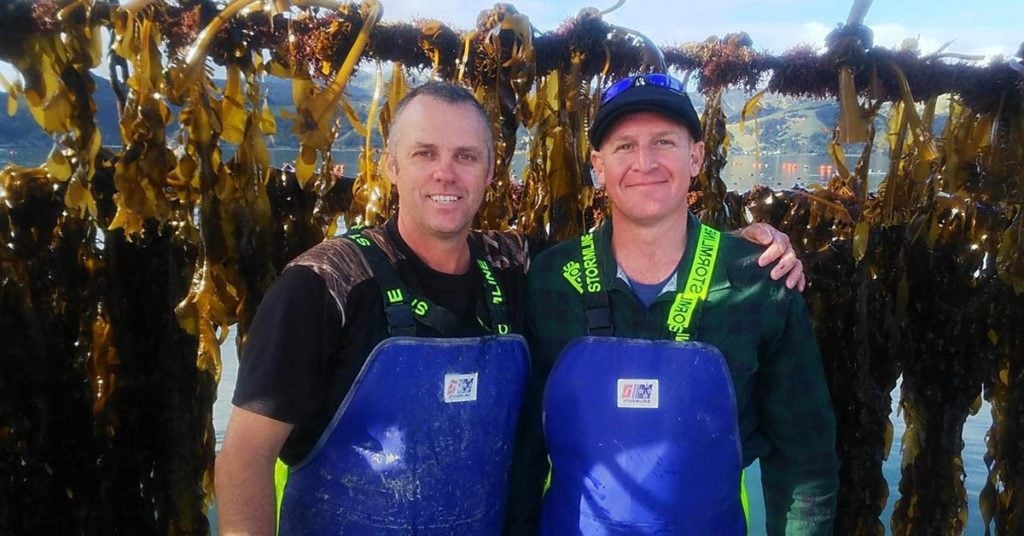Sometimes it truly is not who you know but what you know – like which small business grants you might be eligible for, and how they could put some extra wind in your sails.
There are a host of government grants available for small businesses looking to innovate or grow, and used properly they could be the difference between a dream and a reality.
For instance, after the 2011 tsunami wiped out many of Japan’s seaweed farms, Lucas Evans (pictured below) saw an opportunity to develop a market for New Zealand’s invasive Undaria seaweed as an edible delicacy.
Evans’ Coromandel-based business, Wakame Fresh, is now using a $75,000 Sustainable Food & Fibre Futures grant (SFF Futures) from the Ministry for Primary Industries to work out if it’s commercially viable to harvest, process and export edible seaweed products (‘wakame’) to Japan.
Evans says securing the grant has been a game changer.
“The grant has provided us with the opportunity to develop a comprehensive approach to assessing the feasibility of exporting New Zealand wakame to Japan,” Evans says.
Wakame Fresh invested $114,000 into the project as a co-investment. It is now looking to identify other suitable funding pathways to support future steps.

Available small business grants in New Zealand
Not all grants are suitable for all small businesses but here are some of the key grants you could consider applying for:
Getting Started Grant: Provided by New Zealand’s Innovation Agency, Callaghan Innovation, these grants are designed to “give you a kick-start” and take your business idea from development through to commercialisation. Grant recipients receive 40% of their eligible research and development (R&D) project costs, up to $5,000.
Project Grant: This Callaghan Innovation grant is for larger or more challenging R&D projects. Again, it can cover 40% of eligible R&D costs but it’s not capped at $5,000.
Provincial Growth Fund (PGF): If you’re operating in regional areas of New Zealand you may be able to tap into funding under one – or more – of the following categories: regionally-focused projects, sector-focused projects and infrastructure-based projects.
International Growth Fund: For those offering a product or service that is not business-as-usual, and looking to do business overseas, New Zealand Trade and Enterprise offers up to $900,000 in funding. It’s a co-investment initiative which requires you to stump up 60% of the investment.
He Tupu Ōhanga – Commercial Advisors Scheme: Offered under the Te Pūnaha Hiringa: Māori Innovation Fund, successful Māori collectives are granted up to $60,000 to work with a commercial advisor for up to 18 months.
Regional Business Partner Capability Voucher Scheme:
Small business grant application tips
There are plenty of small business grants on offer, all with varying criteria and application processes, but how do you successfully secure one?
Evans’ advice to other businesses is to do some groundwork before applying.
“You’ve got to ensure that you’re spending public money in an appropriate way and managing it properly,” he says.
“People really need to prepare for that by having a business plan, and putting governance and financial arrangements in place.”
And while a grant application process can help you bolster your own business plan, Evans says you should be wary not to unnecessarily overhaul your business’s M.O. in order to meet certain application criteria.
“There’s a risk in finding yourself bending your approach to meet the requirements of a grant pathway or funding pathway,” Evans says, “because with funding comes a number of obligations.”
That said, looking back on the process, Evans says the funding has been a significant boost for Wakame Fresh.
“It’s played a critical role in mobilising and engaging stakeholders,” he says.
If you’re not eligible for a small business grant, but you still need funds for your next big step, then there’s always a Prospa Small Business Loan. Find out more from a Prospa business lending specialist by calling 0800 005 797.




